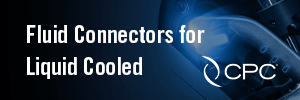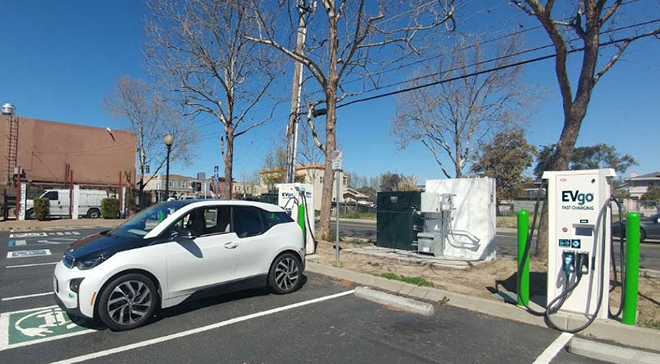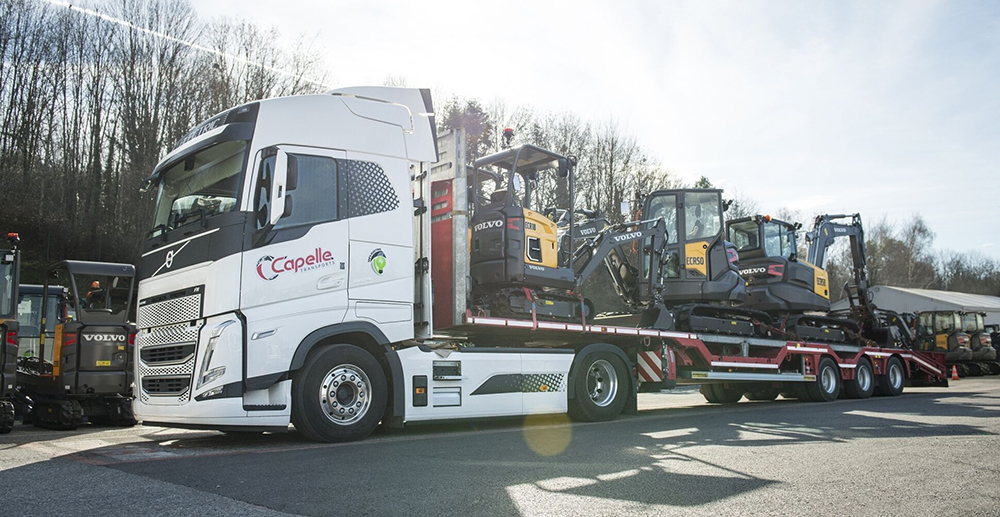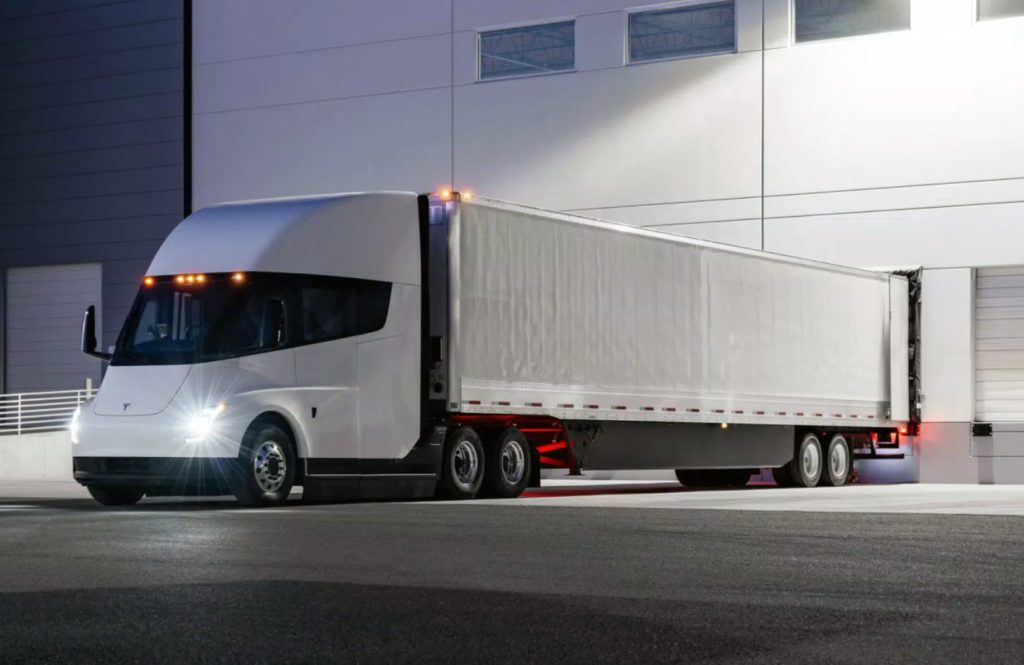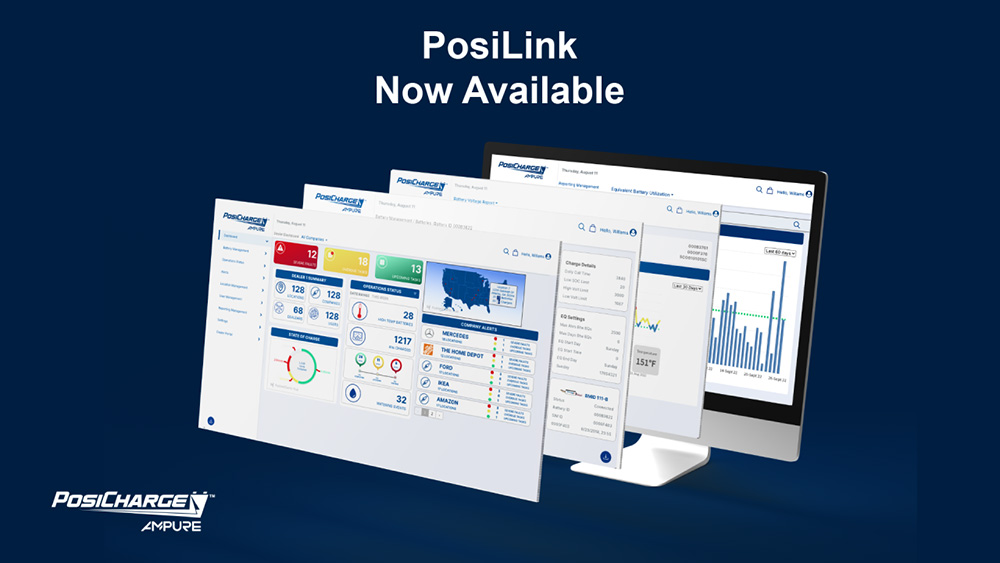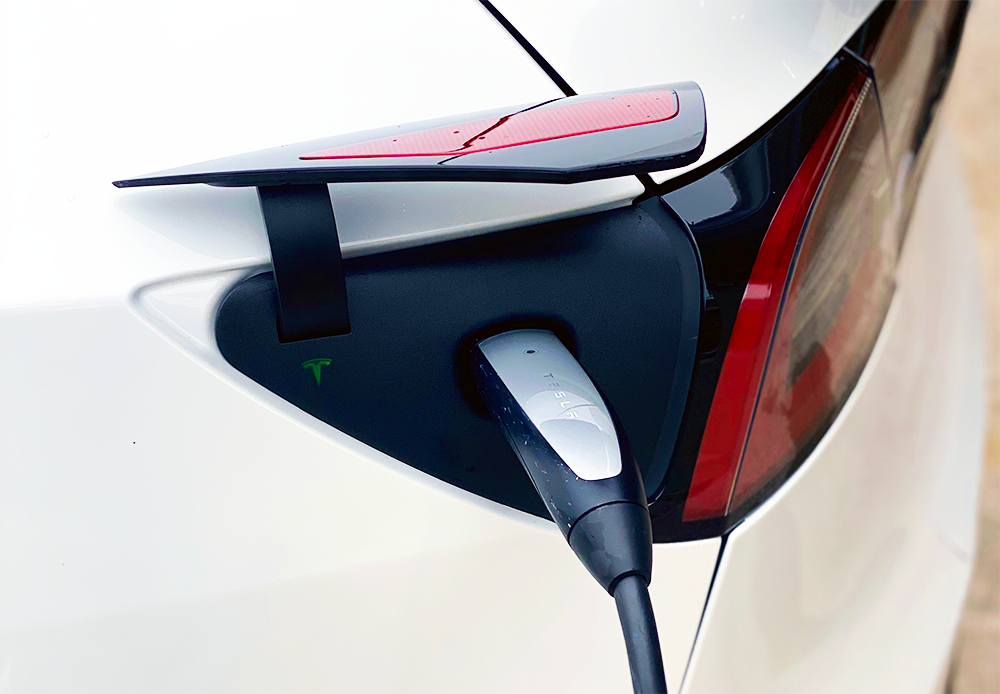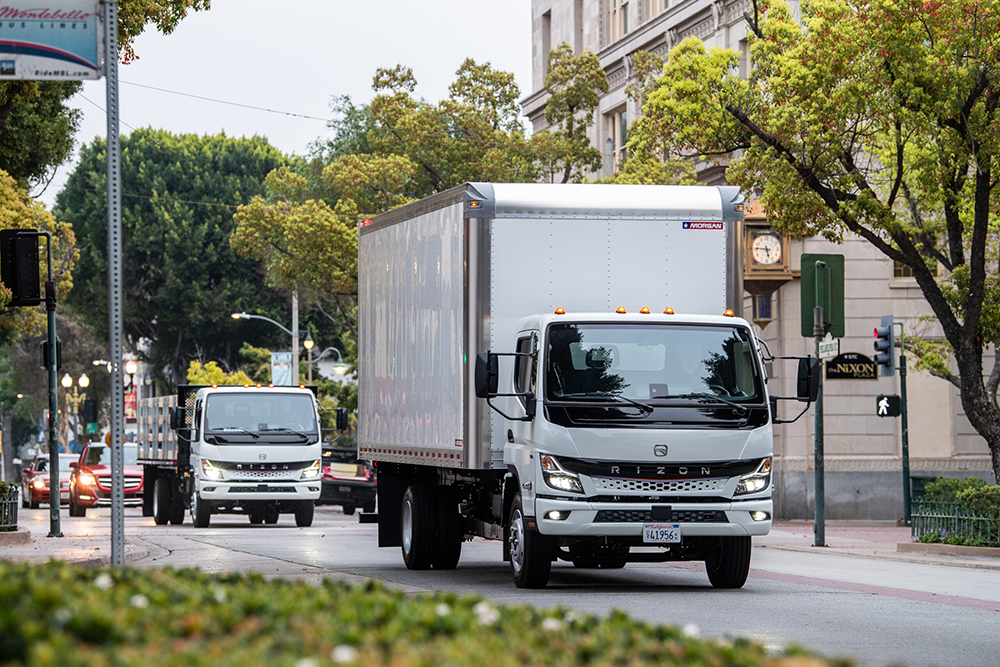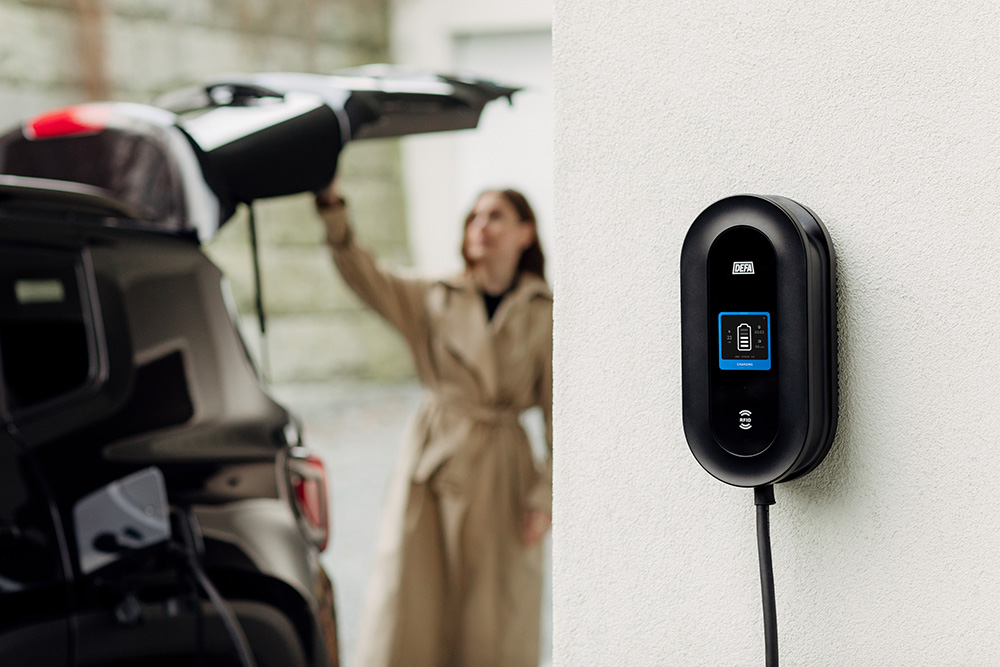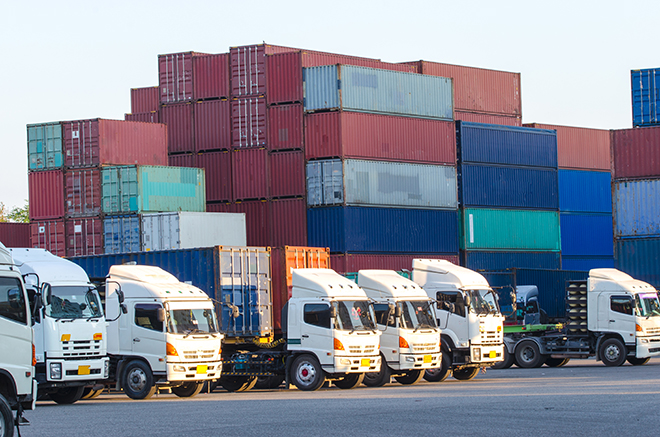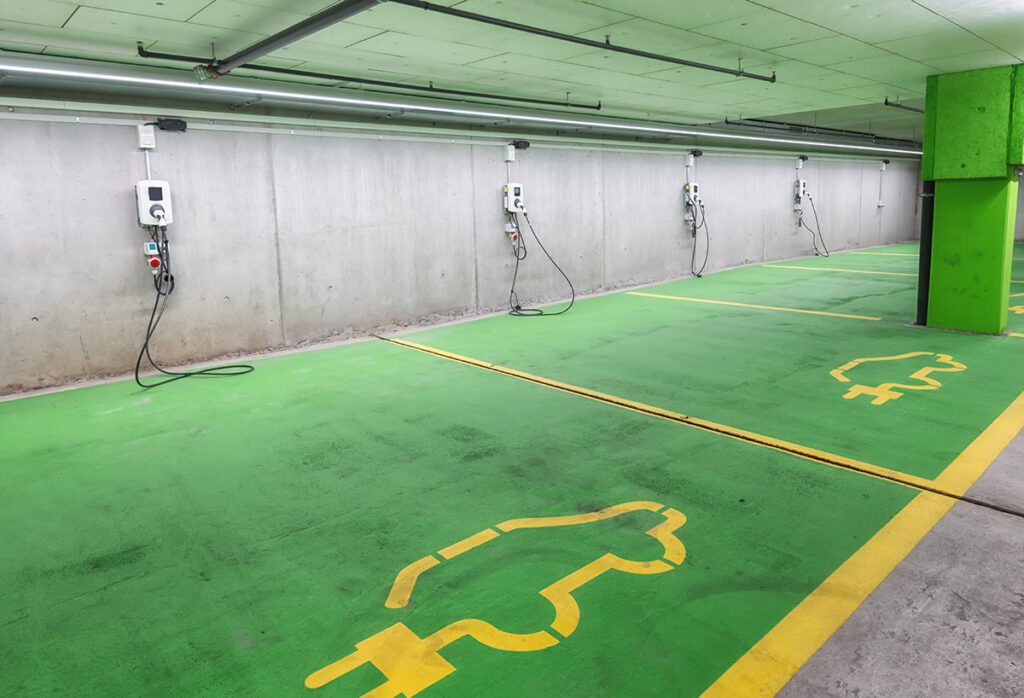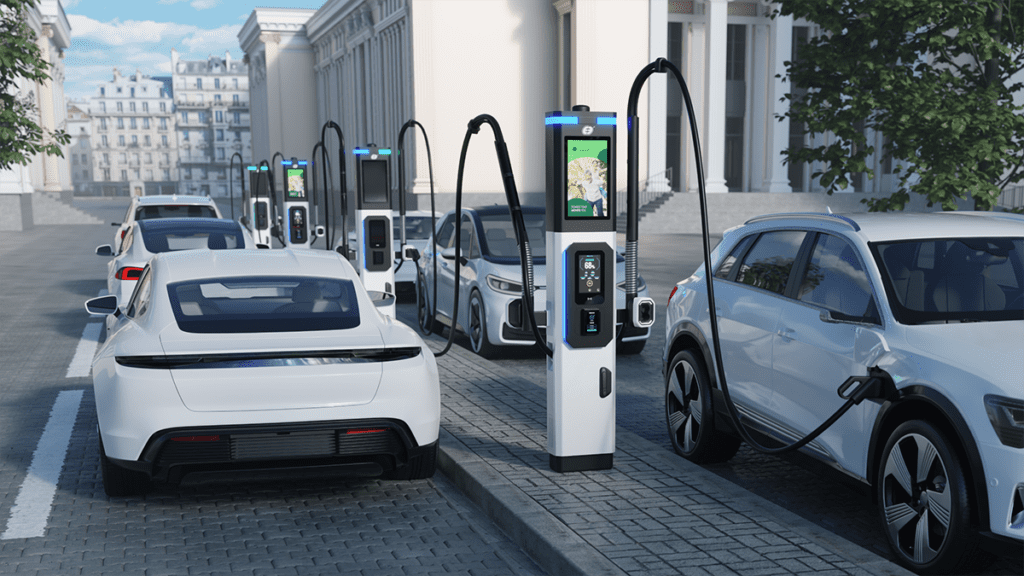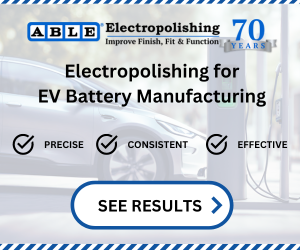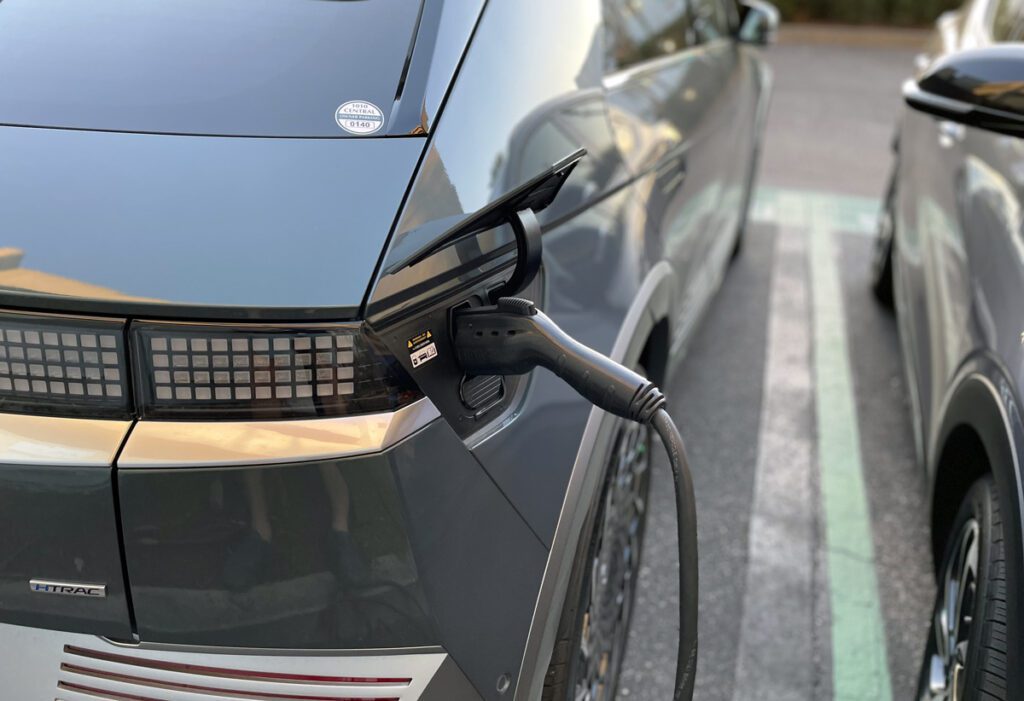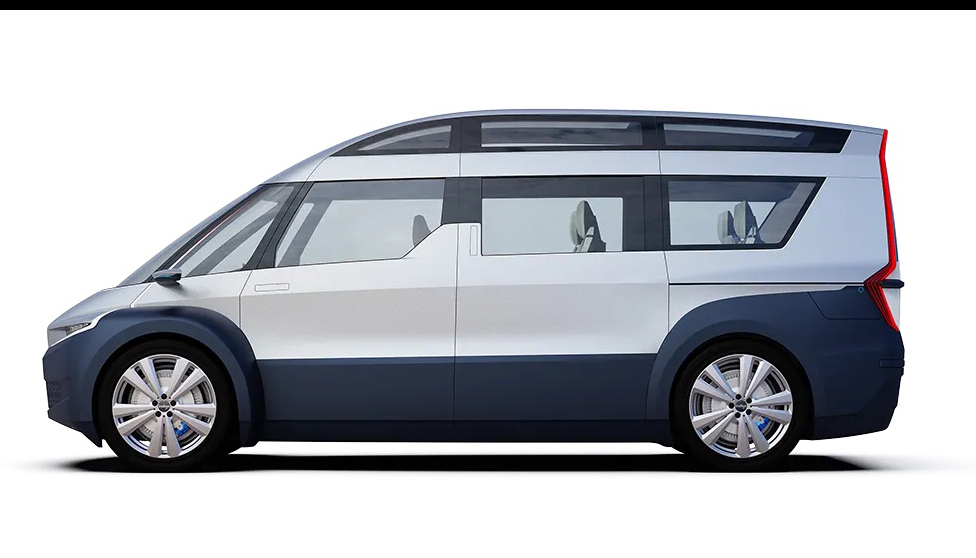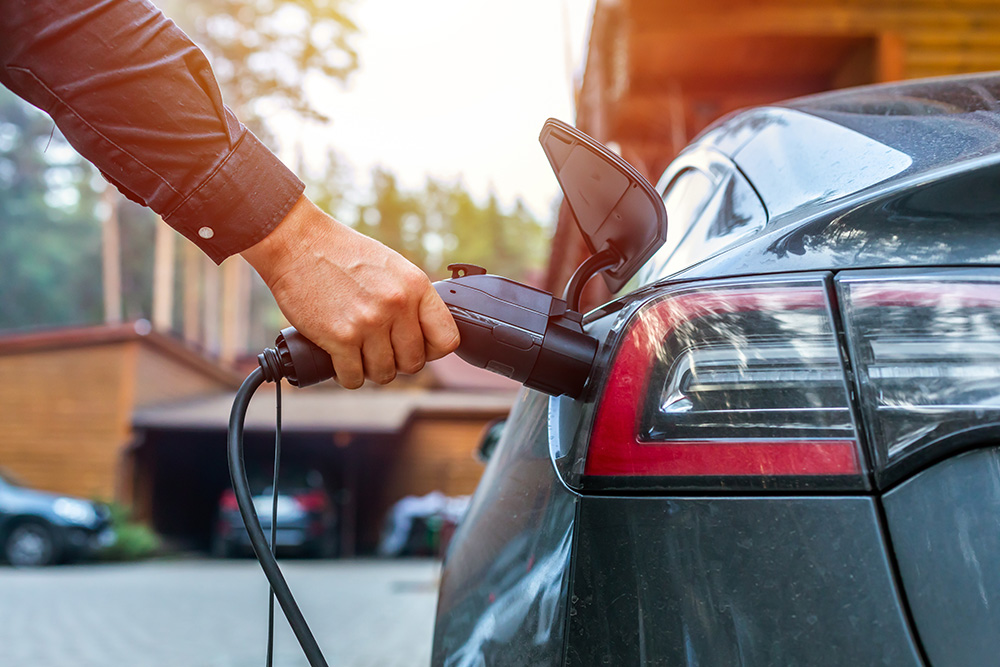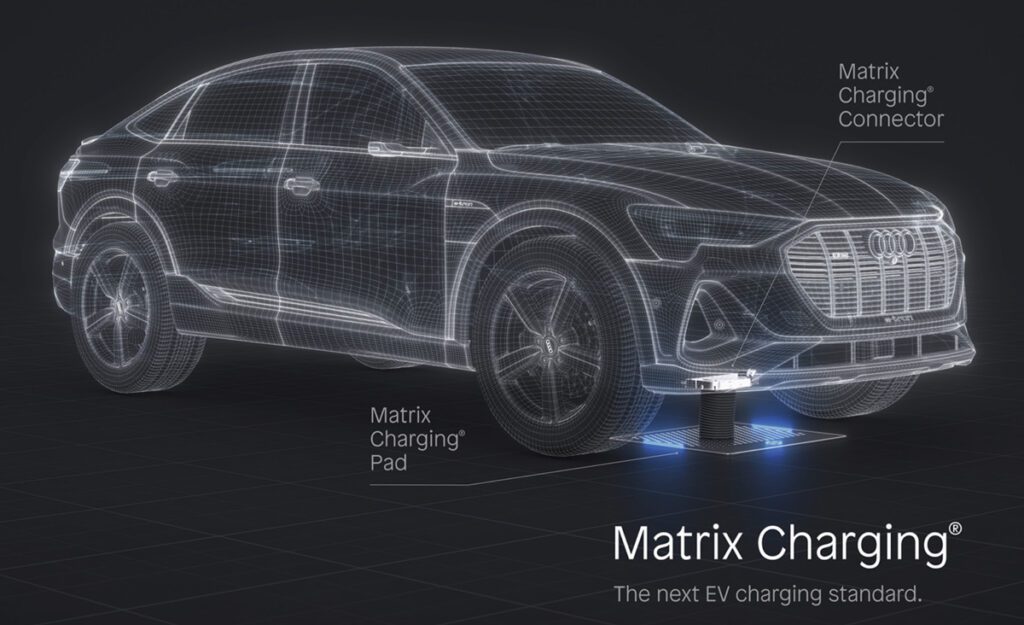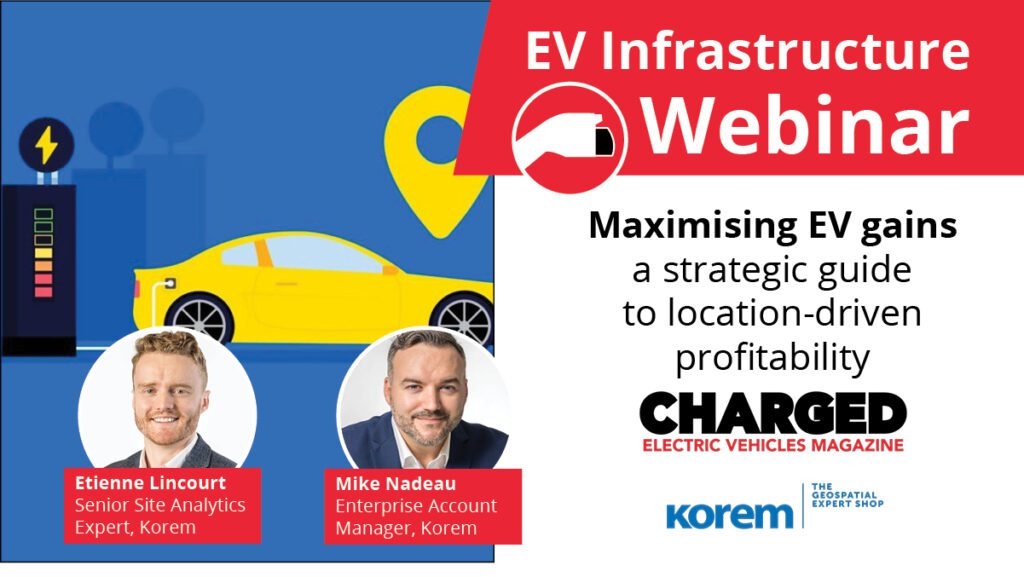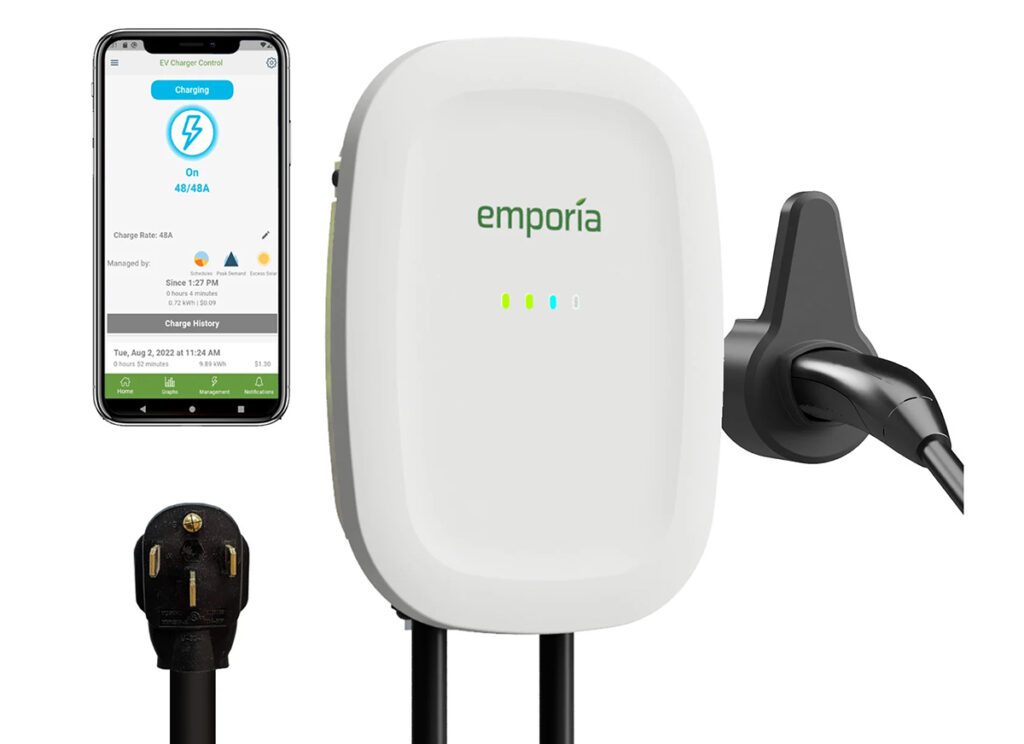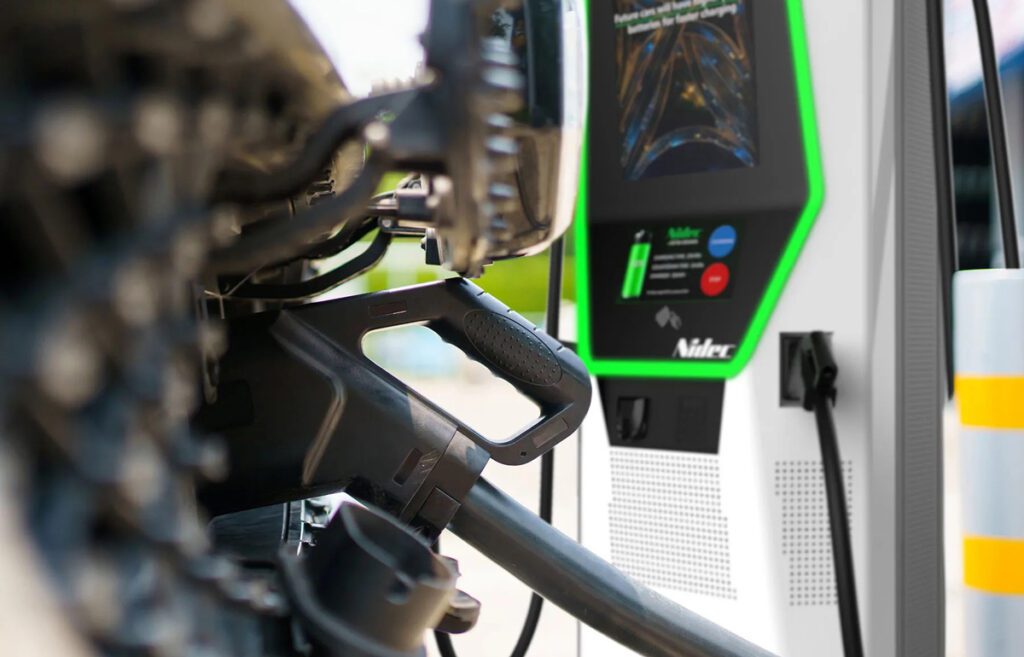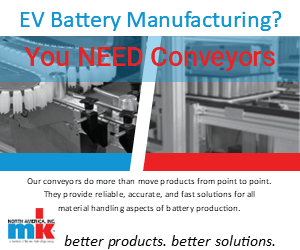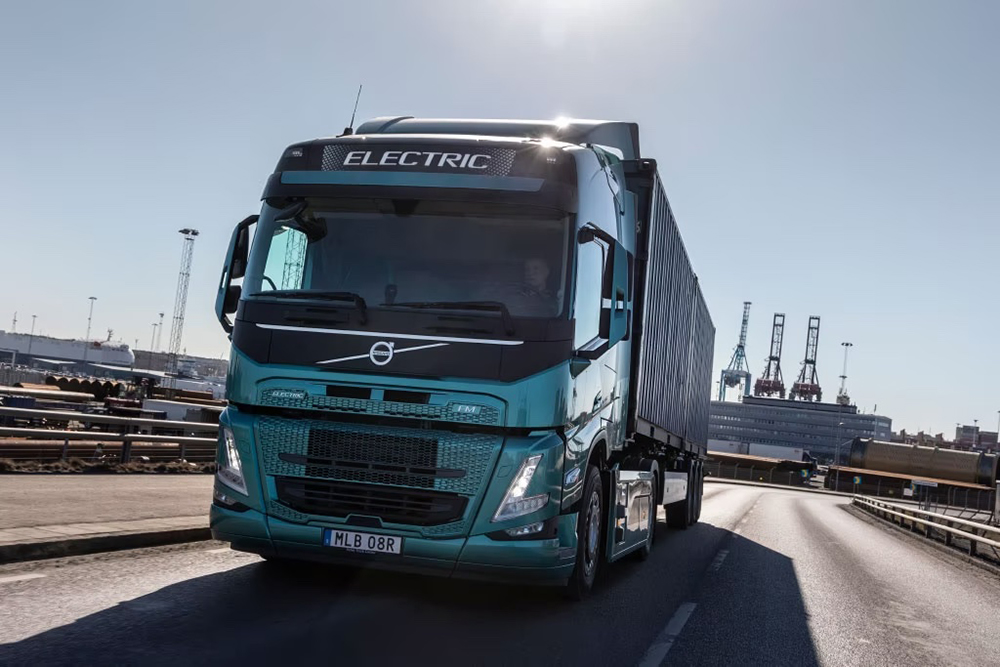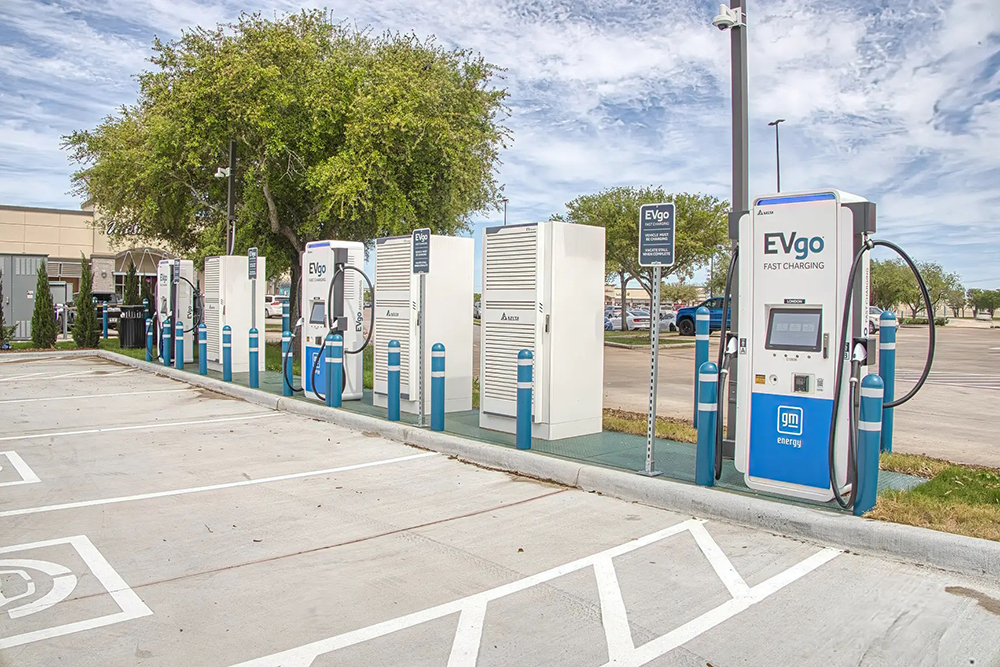Charging network operator EVgo has integrated second-life BMW i3 batteries into a public DC fast charging station. The batteries will store energy from the grid generated during peak solar hours and later use that stored energy for charging during periods of high demand.
Following a pilot program at the University of California San Diego (UCSD), the site, in Union City, California, went into operation earlier this summer. It has two 50 kW DC fast chargers and two BMW i3 battery packs, each with a capacity of 22 kWh. The addition of a 30 kW inverter makes this a 30 kW/44 kWh energy storage system capable of demand charge management.
Several partners cooperated with EVgo on the project. BMW provided the recycled battery packs, and continues to provide ongoing technical support. Princeton Power Systems provided inverter hardware and integrated the inverter with the packs. Kisensum developed software controls for the battery system and managed software integration for the site-level demand charge management.
“Our Union City station is just the start of EVgo’s work integrating advanced energy storage into our rapidly expanding fast charging network,” said Cathy Zoi, CEO of EVgo.
“The increased use of second-life battery technology keeps fast charging of clean electric vehicles affordable and insulates the grid from spikes in electricity demand,” said Austin Brown, Executive Director of the UC Davis Policy Institute for Energy, Environment and the Economy. “Reusing batteries as backup for charging is a win-win for the economics and the environmental benefits of EVs.”
Source: EVgo


